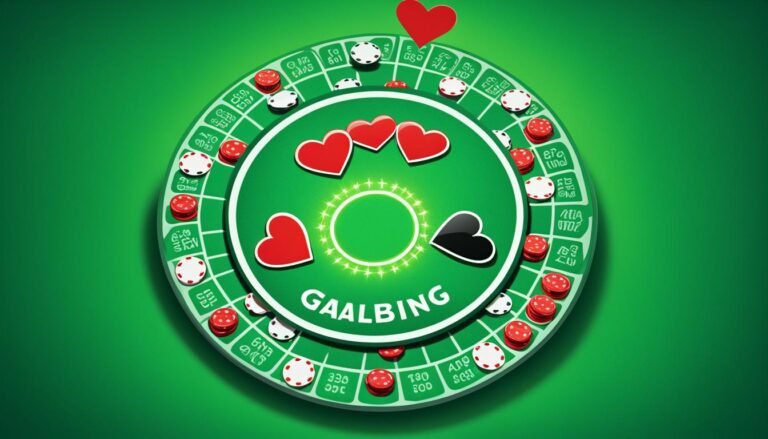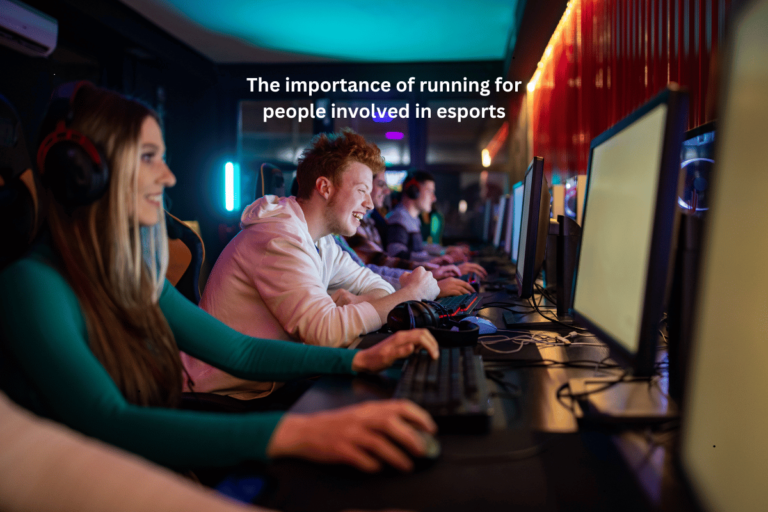Rolling the Dice: How Gambling Can Sharpen Your Leadership Abilities
Introduction
In the domain of leadership, the skill of risk-taking always remains inextricably linked with the conception of the winning strategy. Surprisingly, the thrilling world of gambling from poker and other card games like blackjack, and other similar games can be a perfect training ground for such skills. As a blackjack participant constantly has to evaluate the cards in his/her possession, predict the dealer’s actions and make timely decisions, leadership involves management of challenges, identification of opportunities and a drive to shape their team in the face of ambiguity.
This blog looks deeper into leadership and gambling to stress how betting can help one to improve particularly on the strategic abilities, the competency in decision making as well as the facility in remaining cool under pressure. So come and join us on a game and learn how this art of gambling will sharpen your leadership skills and make you succeed to the next level.
Risk Management
Understanding Risk
An analogy can be made with leadership; the first thing that should be done in the management of risks by leaders is that they need to understand the numerous possibilities of risks that can occur in the social, economical and business environment. When one is putting a wager in blackjack or deciding on some business procedure, one has to evaluate some outcomes that may follow.
This involves the assessment of risk and the comparison of the benefits that may be expected from a decision with its costs. By understanding these risks, the leaders stand to make much better choices that are well calibrated with regard to the goals and risk profile just like every shrewd gambler who will definitely not risk his bet without considering the odds.
Calculated Risks
One of the questions that need to be answered concerning risk management are the reckless and considered risks. Speculative risks are those in which no proper analysis and evaluation are given before taking an action entailing undesirable consequences. On the other hand there are controlled risks which are the known and premeditated risks that are taken after major planning and deliberation and analysis.
In gambling, this can be understood as betting with the help of statistical data and strategies rather than acting instinctively. Likewise, productivity-oriented leaders adopt reasonable risks, which involve assessing the information necessary, the performance implications, and the plans of actions in case of unfavorable outcomes. That specific approach helps to avoid reckless actions that are not elaborate within the context of the strategic plan and, therefore, bear higher risks.
Decision-Making Under Uncertainty
Another similarity relates to decision making under conditions of risk: this is one of the main problems of both gambling and leadership. It should be remembered that leaders have to make decisions with a partial picture of reality; that is like betting in a game of blackjack without knowing what the dealer has in the hole. An individual has to apply some rational and sound judgment in such cases to be successful.
This includes using evidence available to make a decision and at times using the experience in the organization or intuition. Like any other decision maker, the gamblers as well as the leaders need to be at ease with uncertainty and have to resolve any issues on their own. Through developing this skill, leaders are then better placed to respond appropriately to contexts and continually make decisions that will allow their groups to progress even in conditions where the right course is not expressly outlined.
Emotional Intelligence
Staying Calm Under Pressure
More so, when gambling, one may be under pressure, and it is vital to ensure that they do not lose their cool while placing their bets. This is also the case with leadership, just as we saw with flexibility. Whether you are a negotiator, leader, or employee who is being pressured to produce something or make a decision, being able to manage pressure is an asset.
A good leader like a good gambler has to stay calm when things are going up and down, the room is full of energy and most of all when there is no light at the end of the tunnel. This ability to be grounded also helps to improve decision making and from within other team members develops confidence and trust.
Reading People
One of the most compelling features of gambling is the element of understanding people: learning their tells, assessing when they are confident and when they’re not, and deciding on their probable behavior. For leaders particularly, this is a very essential skill that they must learn. People’s behavior can be forecasted for making effective decisions and successfully negotiating with other people and affect the team performances.
Business leaders are in a position to assess stakeholders’ behavioral stimuli and their ultimate goals and purposes more accurately if they learn how to decipher verbal and non-verbal communications. This kind of empathy-based insight enables leaders to relate well with their colleagues hence improving on communication and developing good relations hence good team relations.
Emotional Regulation
First of all, impulse control is important both when playing and when managing a team and an organization. In gambling, people are supposed to control their feelings, there should be no passion so as to control the outcomes of the particular game.
As with their followers, leaders have to control their emotions as well so the atmosphere would stay optimistic and conducive to work. This is a process of deciding whether to act on an emotional impulse or not, or whether to control the feeling and think it through.
Self-regulation of emotion can lead to decrease of stress and promotion of the team climate as well as help navigate the organization successfully. Shermer’s statement suggests that the given style can not only improve individual efficiency, but also affect the entire organizational climate, for the better.
Strategic Thinking
Long-Term Planning
Long-term planning is also very important in games like poker or blackjack where individuals want to be winning for several hours or a day. In most cases, players need to understand the significance of their decisions not only for the given round but also for the next rounds.
Likewise, to build up a great organizational culture that would shepherd one’s company toward eliteness, leaders have to be strategic and learn more about what is to come next. It includes establishment of long-term business gains, defining possible risks, and defining ways of varying these risks.
Having a progressive attitude toward society and a knowledge of future trends allow leaders to develop a plan for future actions and anticipate one’s rivals’ strategies.
Adaptability
Gambling is a progressive activity that includes the need to constantly assess the situation in the game to be able to make the best move. This adaptability is equally important in leadership as it is in any other working profession. As any market develops, the customer base changes and new stones in the road appear.
Leaders need to be flexible as they plan for execution, set out to look for the next opportunity or avoid danger. Thus, such things as the ability to work under conditions of change enable leaders to respond to changes in an efficient manner that does not compromise the strategic position of the organization. Such capacity to change and adapt is an element of strategic thinking contrary to the general mentality of reliance on a specific style that is essential for long term plans.
Resource Allocation
Leadership and gambling have the same implications in the next aspect of resource allocation. In gambling, players have to determine the most suitable divination to employ the chips in the hope of attaining the highest value on every bet.
In the same way, leaders have to appropriately allocate resources, be it time, money, talented people to get the most of it for the organization. This entails evaluating the return on investment and deliverables on various strategies in order to identify plans that would address core business goals, and shouldering that every resource is wielded efficiently to foster expansion and invention.
Hence, in order to effect the strategic management process and permanently enhance organizational performance, leaders must gain full control over resource management.
Confidence and Resilience
Building Confidence
It is essential to make sure that what you are doing is a sure bet, therefore confidence is critical into the gambling world. Over time players have to develop confidence and believe in their choices, be it to hit in blackjack or going for a bluff in poker.
This, in essence, holds true even for the aspect of leadership. He deemed confidence in one’s decision as confidence that results from getting experience, getting to know one’s abilities such as ability to listen, and also getting to know well the dangers of a given decision.
Self-relying leaders are more authoritative and efficient with determination whereas their capabilities confirm the faith of their team members. Through cultivating this self-confidence in the positive outcomes as well as in the negative ones, the leaders are able to manage the most crucial and sensitive aspects of their leadership duties and responsibilities with more confidence and with a more positive attitude towards their tasks.
Handling Losses
A vice is similar to the other in a way that failure is inherent in gambling just as failures are inherent in leadership. While the ability to gamble or lead is quite emblematic of being determinative, the main difference between a winner and a loser is one’s ability to minimize losses and learn from past failures. Gambling, like in every sport, every loss has a lesson that is learned and helps perfect the decision-making process.
Likewise, the leaders have been practicing constructive thinking where they perceive the failures as chances for change as well as personal development. Therefore, the achievement of achieving personal resilience enables the leader to know how to soldier on despite various barriers while using each failure as a stairway to success. It also strengthens the leader, and at the same time, sends out a positive signal to their team.
Celebrating Wins
Like the betters who also cheer when they have won so as to encourage themselves and consolidate on the right strategies they employed, leaders should also celebrate. It is not merely about pointing at the victory, but more about what can be done with this victory, to sustain momentum. It is equally important for any leader to spend some time pondering the fact that something had indeed gone well and that the success should be called out so that the rest of the team can also be inspired to move forward.
This practice promotes team cohesiveness and fosters a culture where achievements are made to breed the next, thus fostering innovation. Rewarding and acknowledging the victories contributes to the consistent motivation of people and to the further work for victory.
Ethical Considerations
Integrity
Part of loyalty in gambling and leading is integrity that surely stands as a base for long term business. Even if competitors threaten to poach employees, maintaining principles’ standards, being ethical and reasonable, distinguish trustworthy organizations from the others. Just as a gambler is confined to the standards and rules of the game to ensure that the administration of the game is fair, leaders must adhere to the standards and principles of ethicality to gain credits from the subordinates, stockholders, and clients.
This means the candidates must be integrity, meaning their business operations should be truthful and clear, and their actions should be both consistent and reliable in the long term even if it’s easier to act in the short term. Hence, the idea that with leadership by high ethical standards, good ethical practices can be established that positively reflect on the success of the organization.
Responsible Gambling
Reasonable gambling is about an individual’s self-control and making all the decisions without endangering their health. The above concept is similar to the concept of responsible leadership where moderation and accountability are key values. One must always remember to be careful especially when coming up with strategies and actions charts, as this has to go hand in hand with thinking big and coming up with great big dreams for not only the self, but also the team, the department and even the entire organization.
As a result, the emphasis on responsibility in decision-making processes allows one to ensure the best results for customers, investors, and the firm as a whole. This is also the realization of the fact that inherent risks exist in carrying out any business and making sure that they are controlled to the effect that they will not pose a threat to the long term health and survival of the organization.
Setting Boundaries
Gambling and leadership are both efficient when they include the skills of knowing when to step back and make a boundary. This in gambling translates to stepping aside when one feels that he/she is going to lose heavily.
In the context of leadership, demarcation is related to the recognition of the onset of scarcity at various points in time in terms of both human and financial resources, and of personnel in terms of time and mental health, which covers the aspect of avoiding factors that could potentially cause harm to the leaders.
This also embraces the ethical issue in any choice – it is the knowledge of when a course could be ill-boding and one must change tack or withdraw. The leaders should set the boundaries for themselves as well as for the organizations so that they work effectively and do not burn out, their subordinates, or the organization at large.







